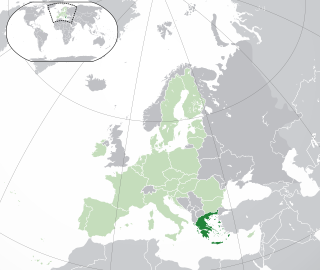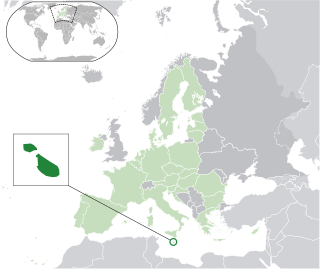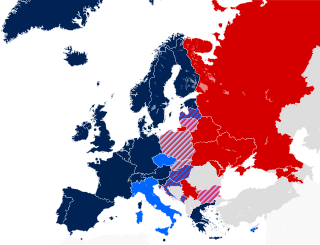
A civil union is a legally recognized arrangement similar to marriage, created primarily as a means to provide recognition in law for same-sex couples. Civil unions grant some or all of the rights of marriage.
Same-sex marriage has been legal in the Netherlands since 1 April 2001. A bill for the legalisation of same-sex marriage was passed in the House of Representatives by 109 votes to 33 on 12 September 2000 and by the Senate by 49 votes to 26 on 19 December 2000. The law received royal assent by Queen Beatrix of the Netherlands on 21 December 2000 and took effect on 1 April 2001. The Netherlands was the first country in the world to legalize same-sex marriage. Polling suggests that a significant majority of Dutch people support the legal recognition of same-sex marriage.
Same-sex marriage has been legal in Belgium since 1 June 2003. A bill for the legalization of same-sex marriages was passed by the Senate on 28 November 2002, and by the Chamber of Representatives on 30 January 2003. King Albert II granted his assent, and the bill entered into force on 1 June. Polling indicates that a significant majority of Belgians support the legal recognition of same-sex marriage. Belgium was the second country in the world to legalise same-sex marriage, after the Netherlands.
Same-sex marriage has been legal in Ireland since 16 November 2015. A referendum on 22 May 2015 amended the Constitution of Ireland to provide that marriage is recognised irrespective of the sex of the partners. The measure was signed into law by the President of Ireland, Michael D. Higgins, as the Thirty-fourth Amendment of the Constitution of Ireland on 29 August 2015. The Marriage Act 2015, passed by the Oireachtas on 22 October 2015 and signed into law by the Presidential Commission on 29 October 2015, gave legislative effect to the amendment. Same-sex marriages in Ireland began being recognised from 16 November 2015, and the first marriage ceremonies of same-sex couples in Ireland occurred the following day. Ireland was the eighteenth country in the world and the eleventh in Europe to allow same-sex couples to marry nationwide.

Poland does not legally recognize same-sex unions, either in the form of marriage or civil unions. In 2012, the Supreme Court ruled that same-sex couples have limited legal rights in regards to the tenancy of a shared household. A few laws also guarantee certain limited rights for unmarried couples, including couples of the same sex. Same-sex spouses also have access to residency rights under EU law.
Same-sex marriage has been legal in Greece since 16 February 2024. In July 2023, Prime Minister Kyriakos Mitsotakis, head of the re-elected New Democracy party, announced his government's intention to legalise same-sex marriage. Legislation was introduced to the Hellenic Parliament on 1 February 2024 and passed on 15 February by 175 votes to 77. The bill was signed into law by President Katerina Sakellaropoulou and took effect upon publication in the Government Gazette on 16 February. Greece was the 16th member state of the European Union, the 21st country in Europe and the 36th in the world to allow same-sex couples to marry.
Same-sex marriage has been legal in Luxembourg since 1 January 2015. A bill for the legalisation of same-sex marriages was enacted by the Chamber of Deputies on 18 June 2014 and signed into law by Grand Duke Henri on 4 July. Polling suggests that a majority of Luxembourgers support the legal recognition of same-sex marriage. Luxembourg was the last Benelux country, the sixteenth in the world, and the tenth in Europe to allow same-sex couples to marry nationwide.
Italy has recognised same-sex civil unions since 5 June 2016, providing same-sex couples with almost all of the legal protections, benefits and rights of marriage. A bill to this effect was approved by the Senate on 25 February 2016 and the Chamber of Deputies on 11 May. It was signed into law by President Sergio Mattarella on 20 May, published in the Gazzetta Ufficiale the next day and took effect on 5 June 2016. Before this, several regions had supported a national law on civil unions and some municipalities passed laws providing for civil unions, though the rights conferred by these civil unions varied from place to place.
Lithuania does not recognise same-sex marriages or civil unions. A bill to grant same-sex couples some limited legal rights and benefits is pending in the Seimas.
Same-sex marriage has been legal in Estonia since 1 January 2024. The government elected in the March 2023 election, led by Prime Minister Kaja Kallas and consisting of the Reform Party, the Social Democrats and Estonia 200, vowed to legalize same-sex marriage. Legislation to open marriage to same-sex couples was introduced to the Riigikogu in May 2023, and was approved in a final reading by 55 votes to 34 on 20 June. It was signed into law by President Alar Karis on 27 June, and took effect on 1 January 2024. Estonia was the first Baltic state, the twentieth country in Europe, and the 35th in the world to legalise same-sex marriage.

Lesbian, gay, bisexual, and transgender (LGBT) rights in Cyprus have evolved in recent years, but LGBT people still face legal challenges not experienced by non-LGBT residents. Both male and female expressions of same-sex sexual activity were decriminalised in 1998, and civil unions which grant several of the rights and benefits of marriage have been legal since December 2015. Conversion therapy was banned in Cyprus in May 2023. However, adoption rights in Cyprus are reserved for heterosexual couples only.

Lesbian, gay, bisexual, and transgender (LGBT) rights in Greece are regarded as the most advanced in Southeast Europe and among all the neighboring countries. Public opinion on homosexuality in Greece is generally regarded as culturally liberal, with civil partnerships being legally recognised since 2015 and same-sex marriage since 16 February 2024.
Same-sex marriage has been legal in Sweden since 1 May 2009 following the adoption of a gender-neutral marriage law by the Riksdag on 1 April 2009. Polling indicates that a significant majority of Swedes support the legal recognition of same-sex marriage. Sweden was the second Scandinavian country, the fifth in Europe and the seventh in the world to open marriage to same-sex couples nationwide. Existing registered partnerships remain in force and can be converted to a marriage if the partners so desire, either through a written application or through a formal ceremony. New registered partnerships are no longer able to be entered into and marriage is now the only legally recognized form of union for couples regardless of sex.

Lesbian, gay, bisexual, and transgender (LGBT) rights in Latvia have expanded substantially in recent years, although LGBT people still face various challenges not experienced by non-LGBT residents. Both male and female types of same-sex sexual activity are legal in Latvia, but households headed by same-sex couples are ineligible for the same legal protections available to opposite-sex couples. Since May 2022, same-sex couples have been recognized as "family" by the Administrative District Court, which gives them some of the legal protections available to married (opposite-sex) couples; as of 2023 November, around 40 couples have been registered via this procedure. In November 2023 registered partnerships were codified into law. These partnerships are available to both same and different sex couples - since July 1, 2024 the implemented registered partnership law has the similar rights and obligations as married couples - with the exception of the title of marriage, and adoption or inheritance rights.

Lesbian, gay, bisexual, and transgender (LGBT) rights in Malta rank among the highest in the world. Throughout the late 20th and early 21st centuries, the rights of the LGBT community received more awareness and same-sex sexual activity was legalized on 29 January 1973. The prohibition was already dormant by the 1890s.
Hungary has recognized registered partnerships since 1 July 2009, offering same-sex couples nearly all the rights and benefits of marriage. Unregistered cohabitation for same-sex couples was recognised and placed on equal footing with the unregistered cohabitation of different-sex couples in 1996. However, same-sex marriage is prohibited by the 2011 Constitution of Hungary, which took effect in January 2012.

Debate has occurred throughout Europe over proposals to legalise same-sex marriage as well as same-sex civil unions. Currently 33 of the 50 countries and the 8 dependent territories in Europe recognise some type of same-sex union, among them most members of the European Union (24/27). Nearly 43% of the European population lives in jurisdictions where same-sex marriage is legal.
Slovakia does not recognise same-sex marriage or civil unions. However, there is some limited legal recognition for unregistered cohabiting same-sex couples, notably with regard to inheritance rights. The Constitution of Slovakia has limited marriage to opposite-sex couples since 2014, and bills to allow same-sex civil partnerships have been introduced several times, most recently in 2023, but all have been rejected.
Same-sex marriage has been legal in Malta since 1 September 2017 following the passage of legislation in the Parliament on 12 July 2017. The bill was signed into law by President Marie-Louise Coleiro Preca on 1 August 2017. On 25 August 2017, the Minister for Equality, Helena Dalli, issued a legal notice to commence the law on 1 September. Malta was the first European microstate, the 21st country in the world and the thirteenth in Europe to allow same-sex couples to marry nationwide. In 2024, Malta was named one of the best marriage destinations for same-sex couples by a British wedding planning website, and polling suggests that a majority of Maltese people support the legal recognition of same-sex marriage.

LGBT rights in the European Union are protected under the European Union's (EU) treaties and law. Same-sex sexual activity is legal in all EU member states and discrimination in employment has been banned since 2000. However, EU states have different laws when it comes to any greater protection, same-sex civil union, same-sex marriage, and adoption by same-sex couples.








